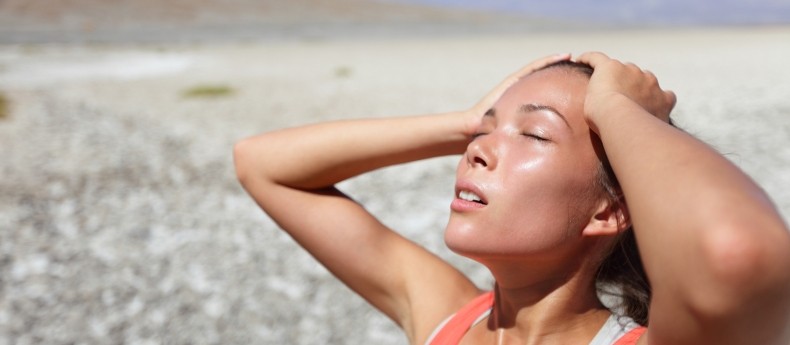
Ask An Expert – Beat the Heat
Leon LI, Associate Chief Medical Officer
Department chair of Emergency Medicine at Shanghai United Family Hospital and Clinics
Department chair of the Emergency and Critical Care Center of Shanghai Market
Head of the Digestive Disease Center of United Family Shanghai Market
Summer is everyone’s favorite time of year. We get to enjoy good food, great friends and of course, the summer sunshine. Unfortunately, summer also presents the year’s highest risk of heat related illnesses such as heat cramps, heat exhaustion, and even heat stroke. It is therefore imperative to know the early warning signs, those most at risk, and what precautions you can take.
What is heat stroke?
Most people know about taking in additional fluids while doing strenuous activities in hot environments, but despite this it is not uncommon to see victims of heat stroke. Heat stroke is a potentially life-threatening condition that requires immediate medical attention. Heat stroke usually hits when the body temperature rises higher than 40 ˚C. Following this, the vital organs begin to be negatively affected, the victim starts breathing rapidly and experiences palpitations. In some cases, sufferers of heatstroke can also have hallucinations, seizures and even slip into coma.
What are the early signs of heat stroke?
It is important to watch for the early warning signs of heat stroke. Heat cramps and heat exhaustion are the first stages of heat stroke, and are easier to notice. If you are working in hot environments and experience lots of sweating followed by fatigue, thirst, muscle cramps, and stomachache, then you need to be cautious as you may be suffering from heat cramps. If you don’t take action, this may escalate to symptoms of nausea, dizziness, and a headache–all signs of heat exhaustion. If you experience any or a combination of these symptoms it is important you take quick action so that you avoid heat stroke. You should drink cool, nonalcoholic beverages that contain electrolytes like sports drinks. Also, get into a shaded or air-conditioned area, or take a cool shower. If conditions get worse, see a doctor immediately.
Who is most at risk?
Everyone needs to take care not to get overheated during summer; however, this is especially the case for the very young and the very old, for those that have chronic health problems like heart disease or high blood pressure, and for those that are overweight.
What precautions should you take?
There are many precautions and preventive measures you can take to avoid heat stroke. Here are a few tips to follow over the summer months:
- It is best not to exercise or do any strenuous activity in hot weather. During the summer, try to schedule exercise or physical labor for the cooler parts of the day, such as early morning or evening.
- Drink fluids regularly, not only when you feel very thirsty. This means taking a break to drink 100-200ml of fluid every half hour. When you are sweating a lot, sports drinks are better than pure water. Regular hydration can not only prevent dehydration but will also help your body regulate your temperature.
- Avoid alcohol and coffee, which can affect your body’s ability to regulate your temperature.
- Dress appropriately for the conditions. Choose loose-fitting and lightweight clothing that allows your sweat to evaporate easily.
- Be more cautious if you are taking certain medications. Several medications can affect your body’s ability to stay hydrated. These include medicines for heart problems, high blood pressure pills, and certain psychiatric medications. You should consult your doctor if you are uncertain about any of the medications you are taking.
- Avoid staying inside a hot car for long periods of time and never leave children in a parked car in hot conditions. When parked in the sun, the temperature in your car can rise more than 11˚C in just 10 minutes.
Copyright United Family Healthcare 2018 All right reserved ICP 京ICP备13017554号-4




